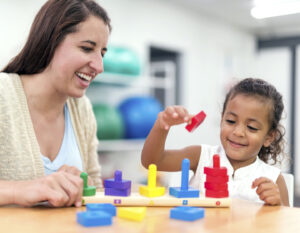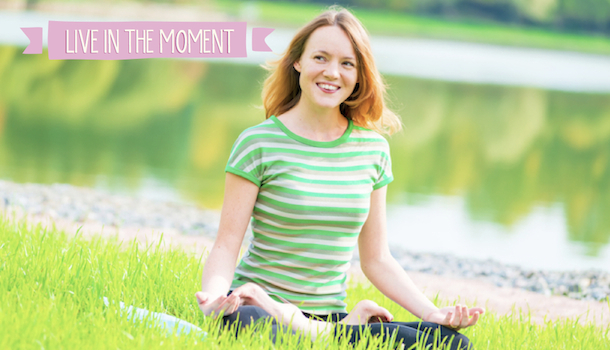

There is a word, or rather a concept that is being talked about a huge amount currently: mindfulness. This life skill, with roots in Buddhism and close links to meditation and anapanasati (mindful breathing techniques) has worked its way quite authoritatively into pop culture (so it must be good for you right?). As someone who could quite easily walk past Madonna, the Queen or my Mum (all equally important) on the street and not notice, I was keen to find out more.
Speaking with Justine Campbell of the Hong Kong based Mindquest Group, I was lucky enough to learn a little more about the concept of Mindfulness, and how we can integrate its approaches as individuals, mothers, and members of society. As Justine so aptly described life in Hong Kong for parents and children alike, it’s rather like being a hamster racing round on a wheel: we all have commitments to endless tasks and activities, and have little time to really experience or appreciate anything in the present moment. The practise of Mindfulness is the antithesis to this habitual state of distraction, one definition is: “paying attention in a particular way, on purpose, in the here and now, without judgements”.
But what does it really mean to be mindful? In essence, it’s about quietening the inner voice, outer distractions, observing ones feeling, emotions, and experiences, and therefore living in the moment. Now I would say that my inner voice is louder than most, deafening at times; my endless tendency to worry about the future, the past, and everything in-between is exhausting, and I’m sure a waste of good energy. When I’m not arguing with myself internally, young sir and madam keep the house rather loud. So, now that the Christmas madness has passed, I am intrigued by the increasing popularity of actively calming the inner and outer madness, and living life in the moment.
Do I want to live? Sure? Do I want to experience joy and connectivity, and show up to my own life, and that of my kids? Yes sir. Let me just write that down on my pad or tell Siri before I forget, and herein lies the problem. Justine discussed some of the issues with a life without mindfulness: screens, these are a big part of it; we’re all perpetually glued to screens, ALL THE TIME. To add fuel to the fire, children see, children do, and they’re also little gadget addicts. As caring and interested mamas we’ll ask how their day went, while mopping the floor, sending emails, reading the news – it’s listening, sure, but it’s not active listening. We eat our meals and zone out, yes, we’re aware that we’re eating, but we’re not mindful of the experience, the sensation and the tastes. Justine even suggested a little beginner’s mindfulness experiment called the “dinner table test”, where you’re blindfolded as you eat, blocking out all other sensations. This sounds like something interesting to try, although in our household we may have to wait until we’re past the trouble of just getting them to get food from fork to mouth without spilling on the table!
When it comes to parenting and children, Justine shared some useful tools and resources, beyond the overall advice to be “present” and avoid being on autopilot when interacting with our little darlings. We should endeavour to talk to our children about their thoughts and views on a particular experience, especially those happening in the here and now, i.e. “What did it feel like / taste like / look like?” Not everything will be a positive experience – things and people are what they are – and it’s healthier to accept ourselves and life for what it is, than blank it out with distractions.
My fear is that whilst becoming more mindful could potentially be wonderfully enlightening, this is all far easier said than done, especially for the mini ones who frankly have enough on their little plates. I was encouraged to learn about Mindquest’s workshops which include practical programmes for children related to empowerment, self-confidence, social thinking and emotional wellbeing. For relaxation, children can also access relaxation aides in the form of themed MP3 downloads from Relax Kids, designed to help develop resilience, self-confidence, encourage deep rest and reassurance, cope with anger, anxiety, and recognise their strengths and sense of self-worth.
So, having already made my new years’ resolutions to be kinder to myself, I now add to the list: “Show up to life”. This will be my mantra, because guess what? One day all that precious time is gone. If teaching and learning “social and emotional learning skills that link cognitive neuroscience, positive psychology and mindful awareness training” is good enough for Goldie Hawn, founder of MindUP from the Hawn Foundation, then it’s good enough for this crazy HK mama.
 View All
View All

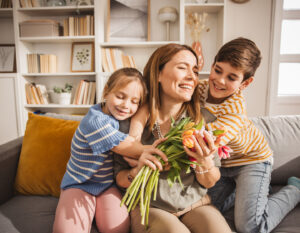
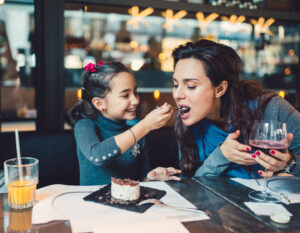








 View All
View All




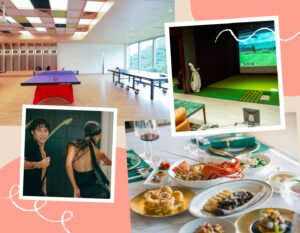
 View All
View All


 View All
View All
